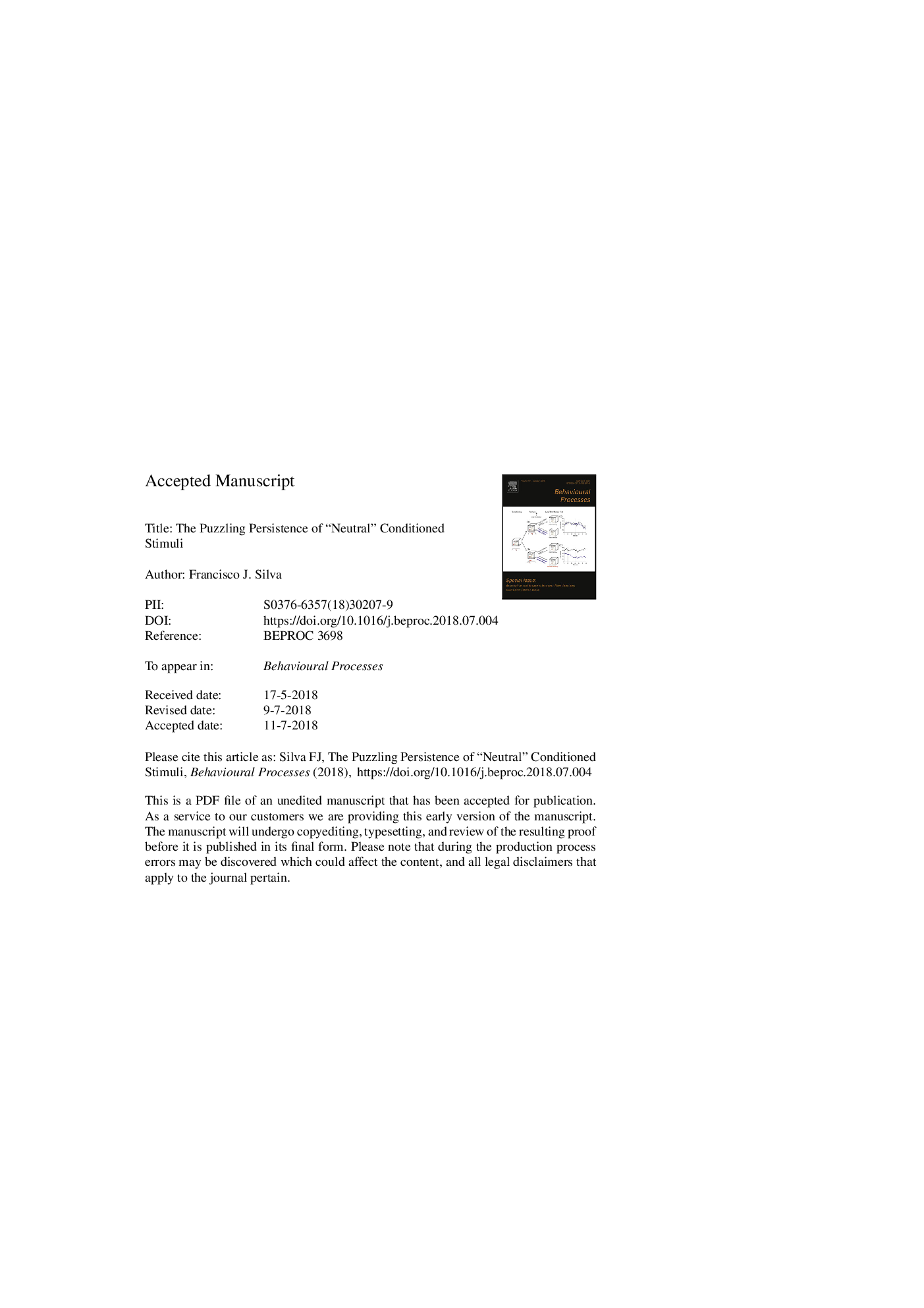| Article ID | Journal | Published Year | Pages | File Type |
|---|---|---|---|---|
| 10143157 | Behavioural Processes | 2018 | 49 Pages |
Abstract
For almost a century, the idea that neutral stimuli acquire meaning by association with biologically-relevant stimuli has been a fixture of psychologists' descriptions of Pavlovian conditioning. A potential problem with this view is that there exists unambiguous data against the notion that conditioned stimuli (CSs) are neutral prior to conditioning. The results of studies that examined the effect of the type of CS on the form of the conditioned response (CR) are consistent with a behavior systems framework, which supposes that the physical characteristics of the CS interact with an animal's evolved stimulus sensitivities and response tendencies related to the unconditioned stimulus (US) and other features of the training situation to influence the form of the CR. Empirically, Pavlovian conditioning does not require a neutral stimulus. Conceptually, it is unclear that neutral stimuli even exist. Definitions and descriptions of Pavlovian conditioning should avoid referring to neutral stimuli.
Related Topics
Life Sciences
Agricultural and Biological Sciences
Animal Science and Zoology
Authors
Francisco J. Silva,
